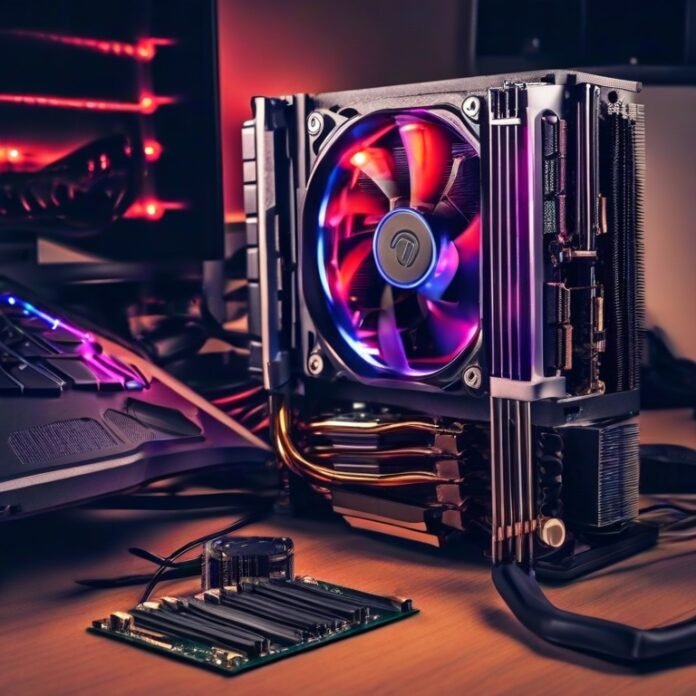Last Updated on May 18, 2024 by sunjava22
Is your PC Overheating When Gaming? Here’s How to Fix It!
We’ve all been there – in the middle of an intense gaming session, when suddenly your computer starts to slow down and the dreaded pop-up appears: “Your computer is overheating.” Not only can this be frustrating, but it can also greatly affect your gaming experience. But fear not, because today we’re going to show you how to fix your PC’s high temperatures and prevent overheating when gaming.
Step 1: Open Up Your PC
The first step to reducing your PC’s temperature is to try running your games with the side panel of your computer open. This simple step can improve airflow in your case and lower temperatures by up to 10 degrees. If this works for you, then adding some extra fans to your case can further improve your cooling system.
Step 2: Clean Your Fans and Heat-Sinks
If opening up your case doesn’t do much to reduce the temperature, then it’s time to get cleaned. Dust and dirt build up in your fans and heat sinks can greatly affect their efficiency in cooling down your components. Take the time to remove any buildup and give them a good clean with a brush. You’ll be surprised at the difference it makes.
Step 3: Reapply Thermal Paste
If your fans and heat sinks are clean but you’re still experiencing high temperatures, then it’s time to reapply thermal paste. This paste helps fill any tiny air bubbles between your CPU and heat-sink, improving the transfer of heat. Remove the old paste and add a new layer for optimal cooling.
Step 4: Limit CPU Power Options
One of the most effective ways to reduce high temperatures when gaming is by limiting your CPU power options. This not only decreases temperatures but also increases performance. Start by opening your Control Panel and creating a High-Performance power plan. Then, go to Advanced Power Settings, and under Processor Power Management, set the minimum processor state to 80% and the maximum to 90%. This will help your CPU work more efficiently and decrease temperatures.
Step 5: Upgrade Your Cooling System
If none of the above steps work, it might be time to consider upgrading your cooling system. Investing in a liquid CPU cooler or a premium air CPU cooler can greatly improve your PC’s cooling capabilities and prevent overheating when gaming. Additionally, upgrading your case fans can also make a noticeable difference in temperature control.
Recommended Coolers and Case Fans:
- Corsair Liquid CPU Cooler
- Cooler Master RGB CPU Liquid Cooler
- Noctua Premium Air CPU Cooler
- Cooler Master Hyper CPU Air Cooler
- Corsair LED Low Noise Cooling Fan
- Uphere 3-Pack Computer Case Fan
- Cooler Master MasterFan & Liquid Radiator
- Antec Case Fan
Don’t let overheating ruin your gaming experience. With these simple steps, you can easily improve your PC’s cooling system and keep your temperatures under control. Remember to regularly clean your fans and heat sinks, reapply thermal paste, limit CPU power options, and consider upgrading your cooling system for optimal performance.
Conclusion
High temperatures and overheating when gaming can easily be fixed with the right steps. By following our guide, you can ensure a smooth gaming experience with cooler temperatures and improved performance. So go ahead and give these tips a try – your PC (and your gaming sessions) will thank you!




